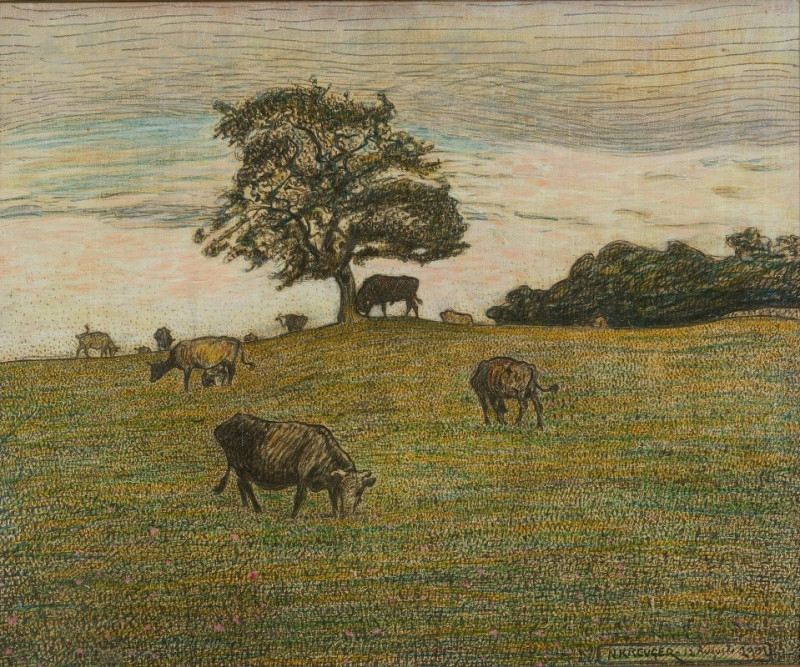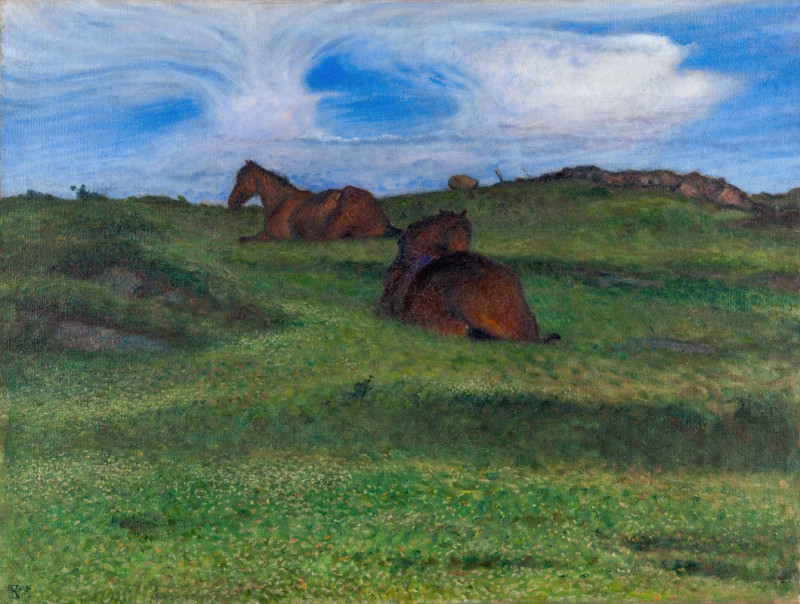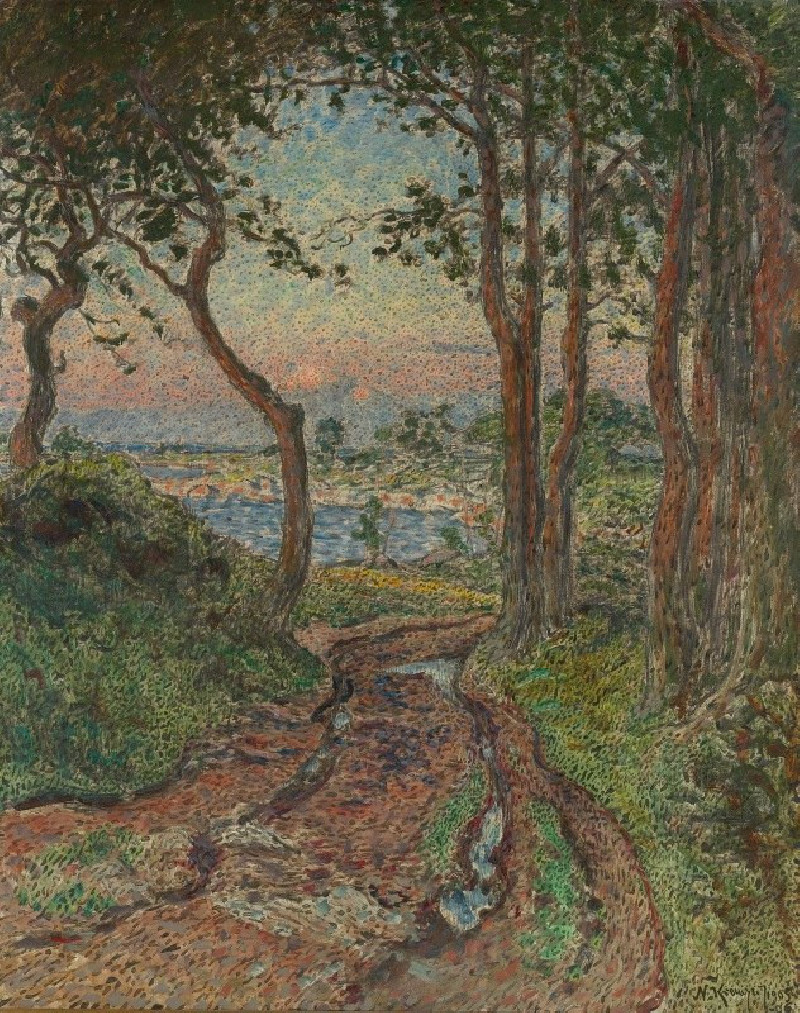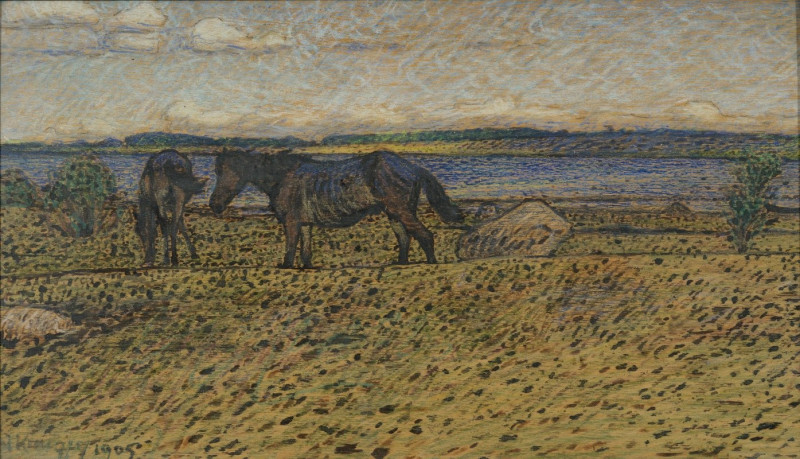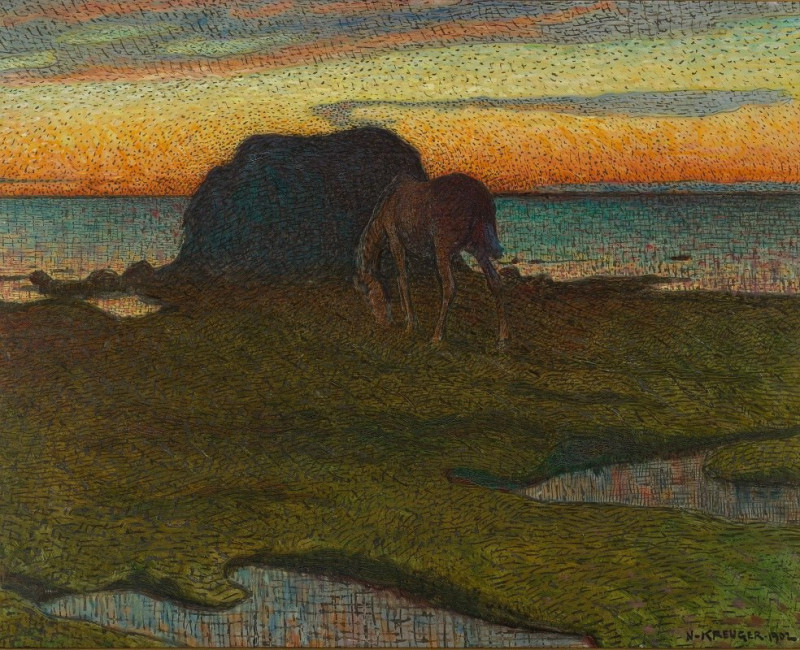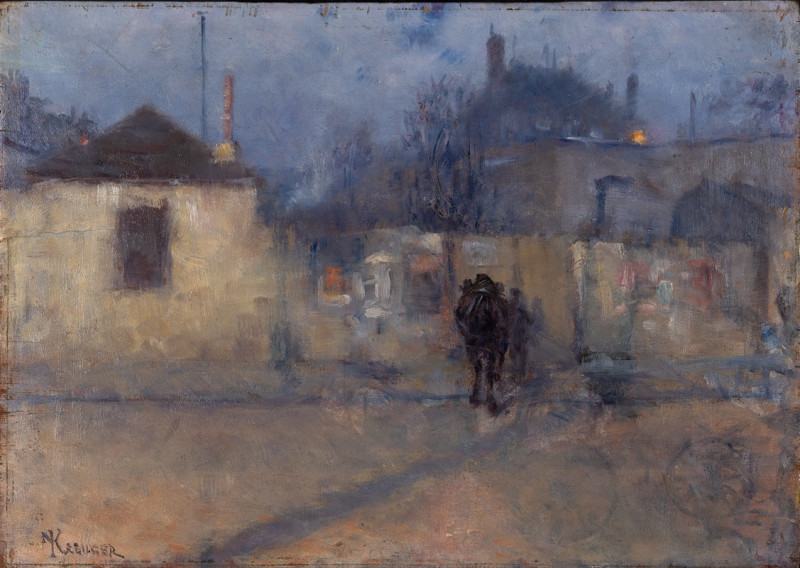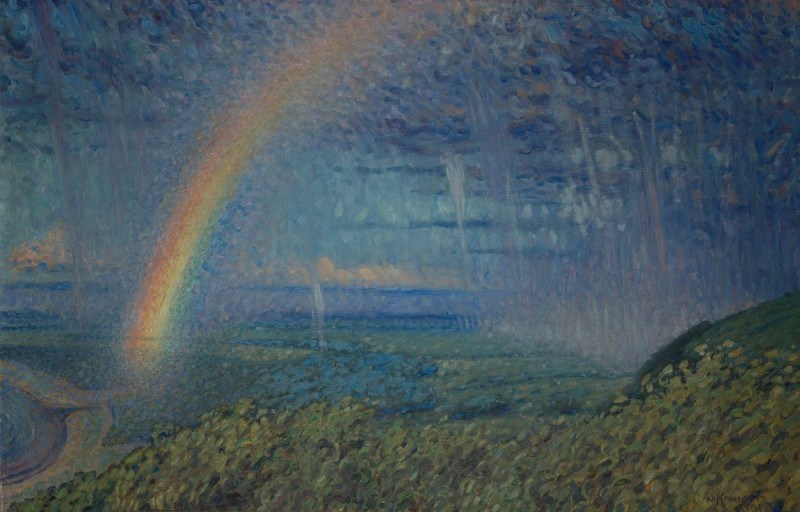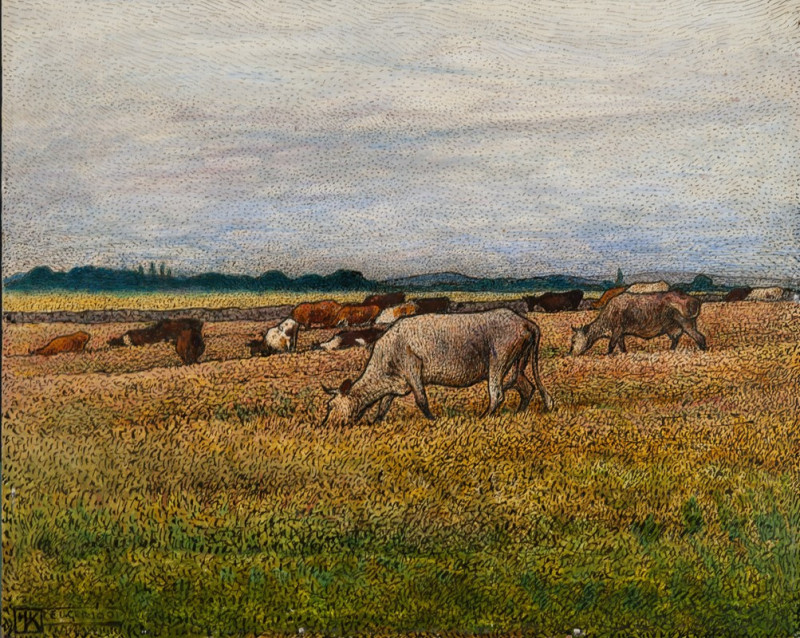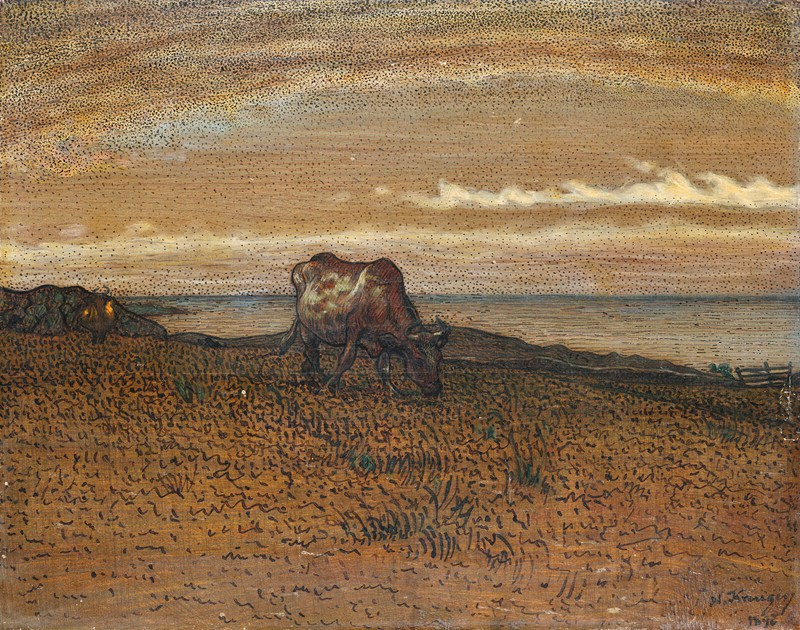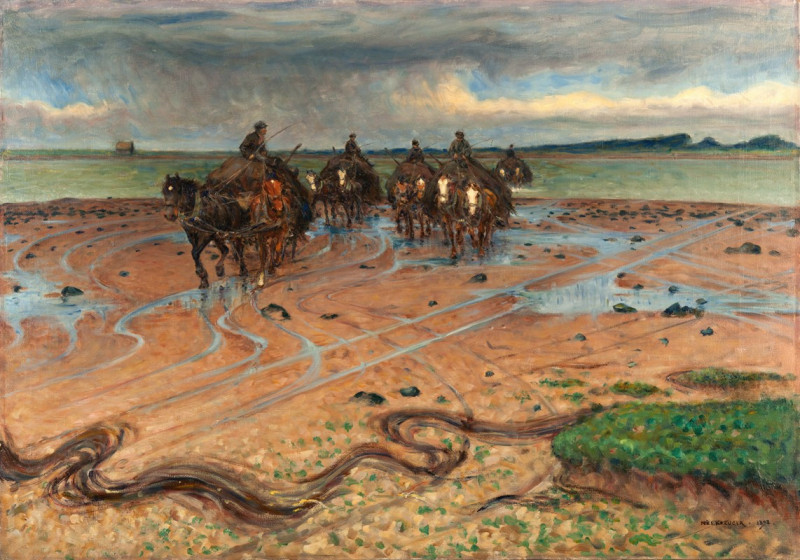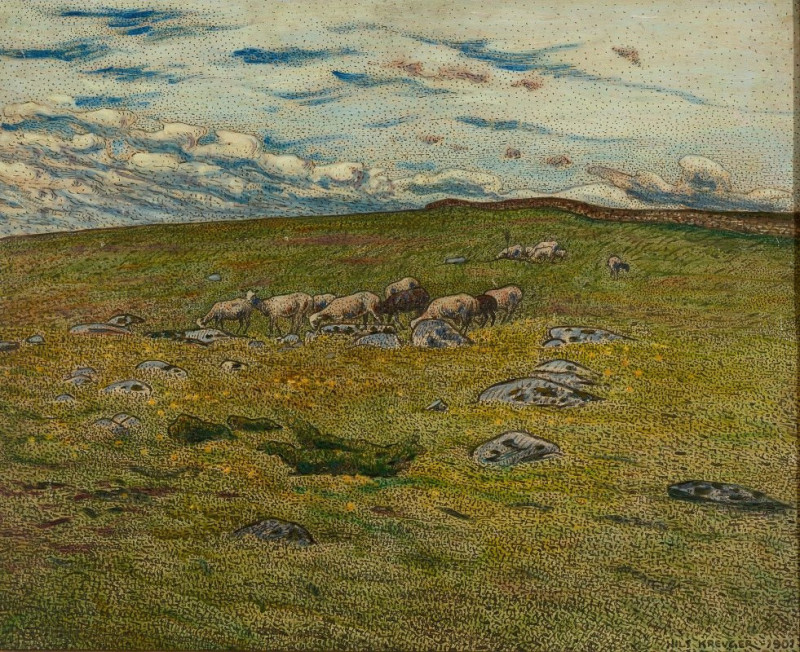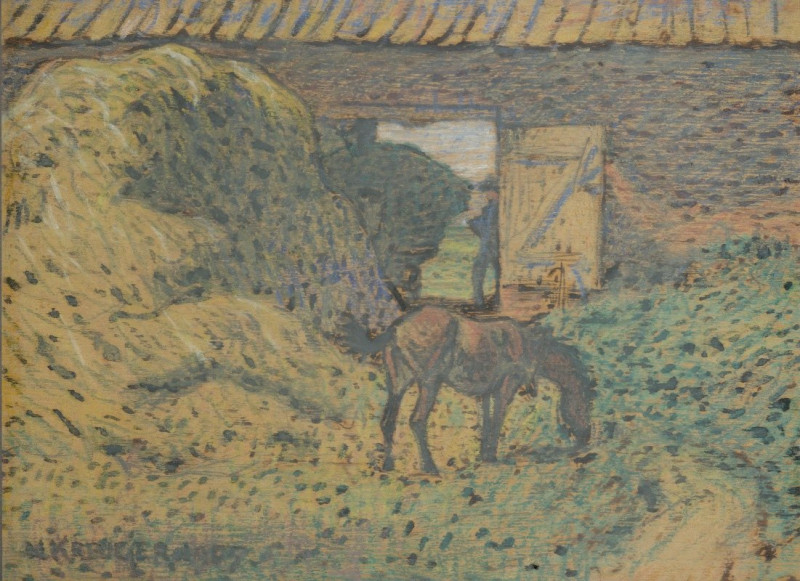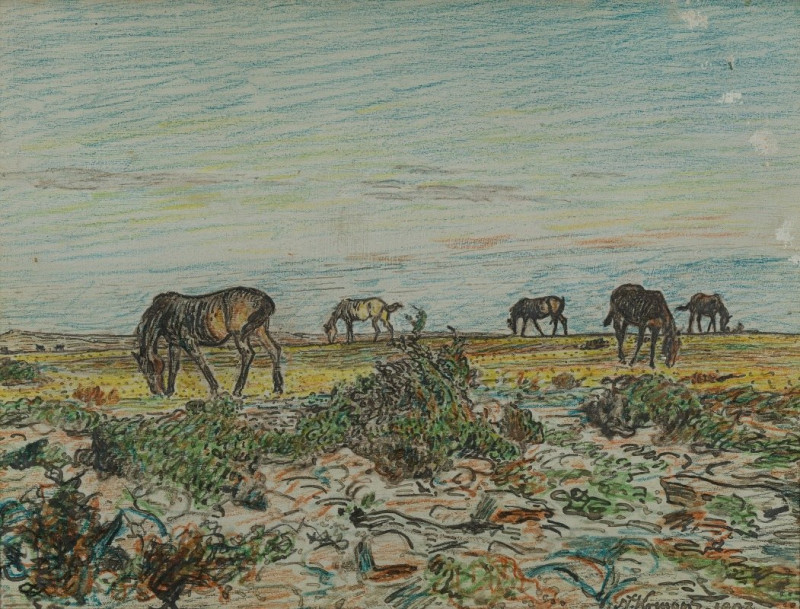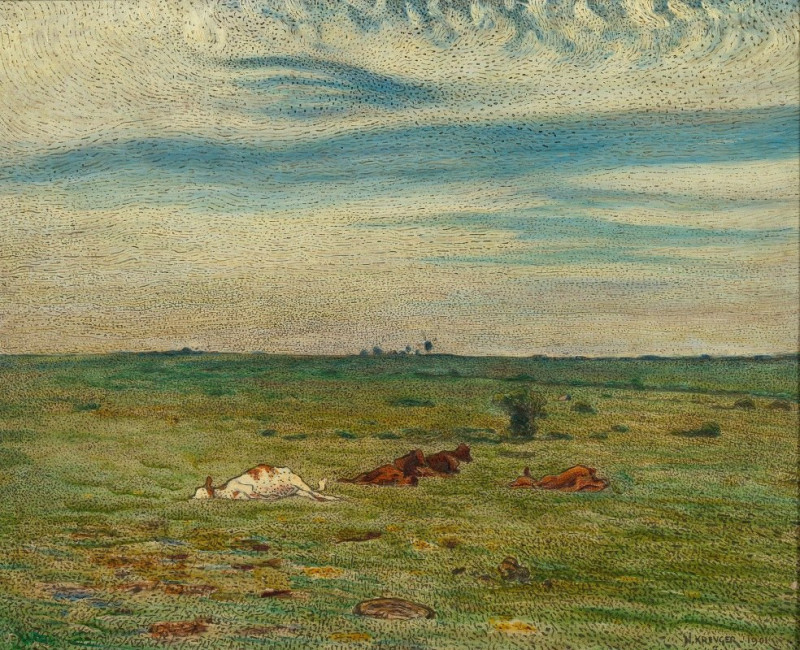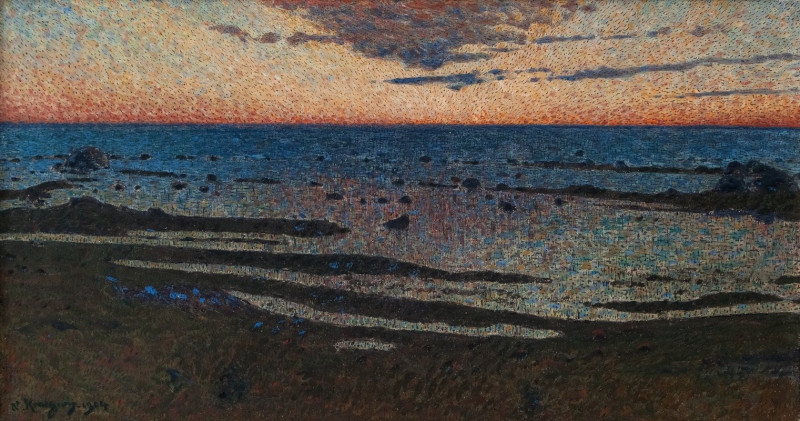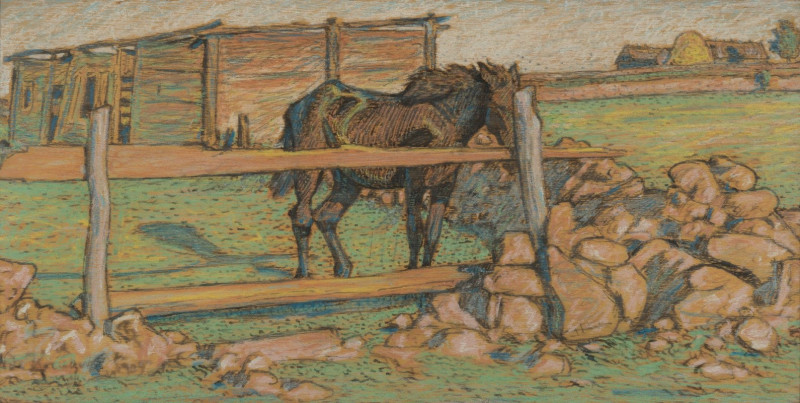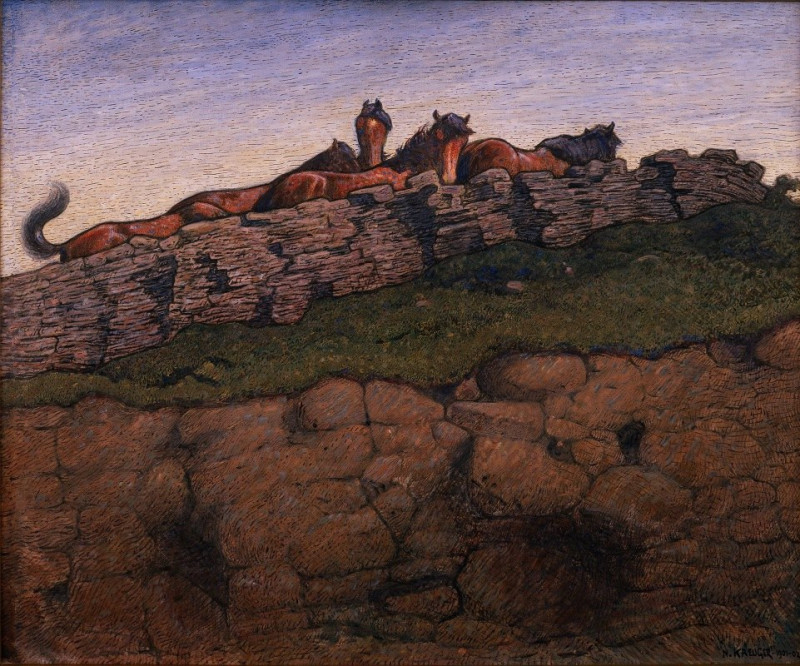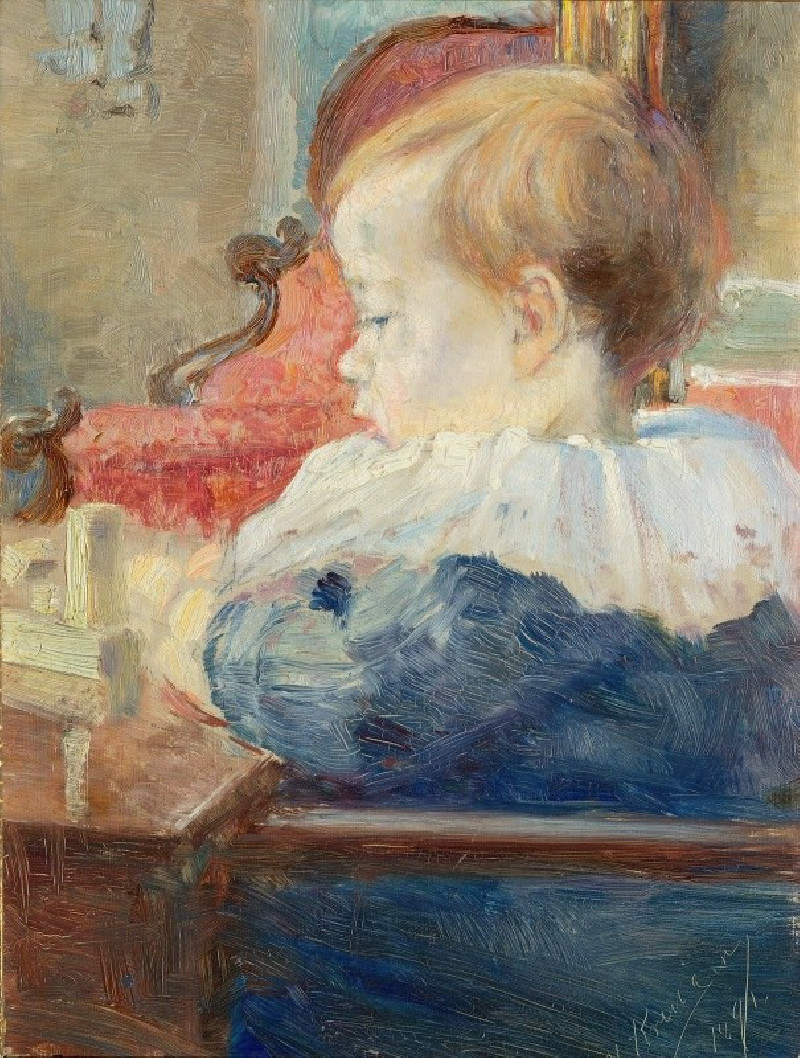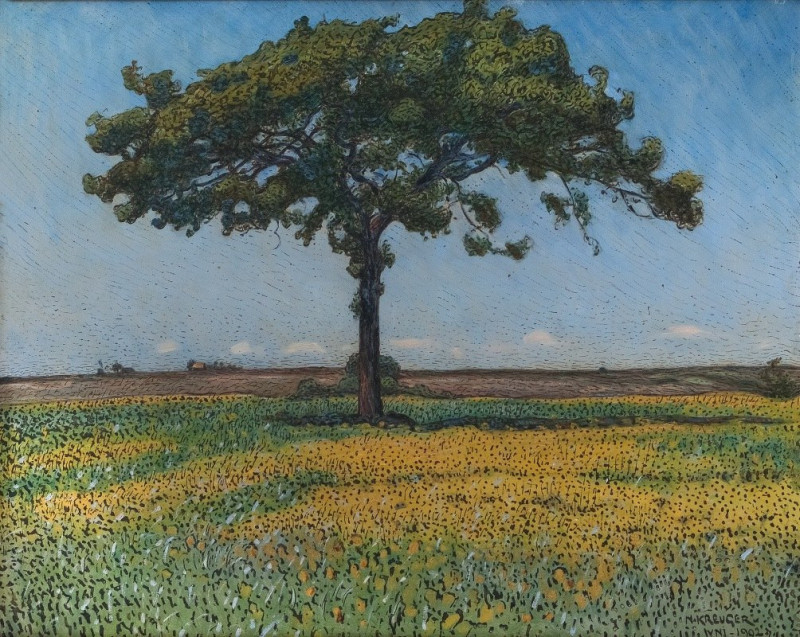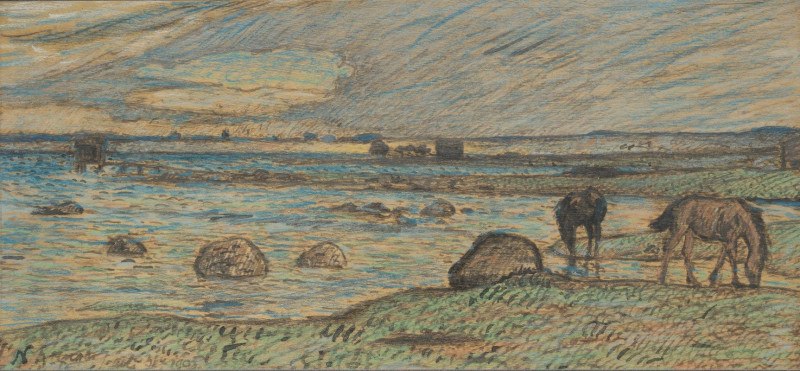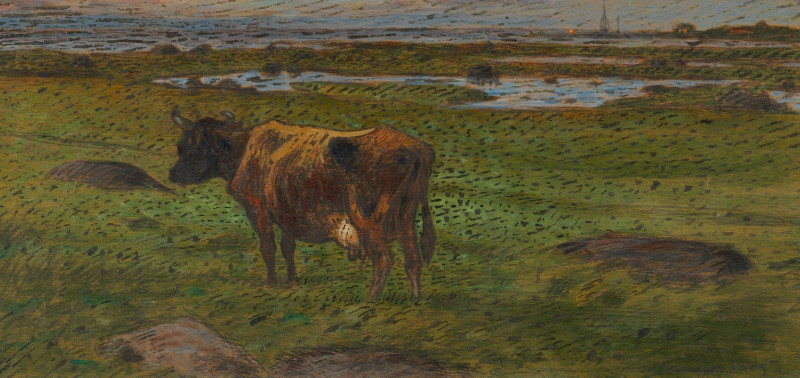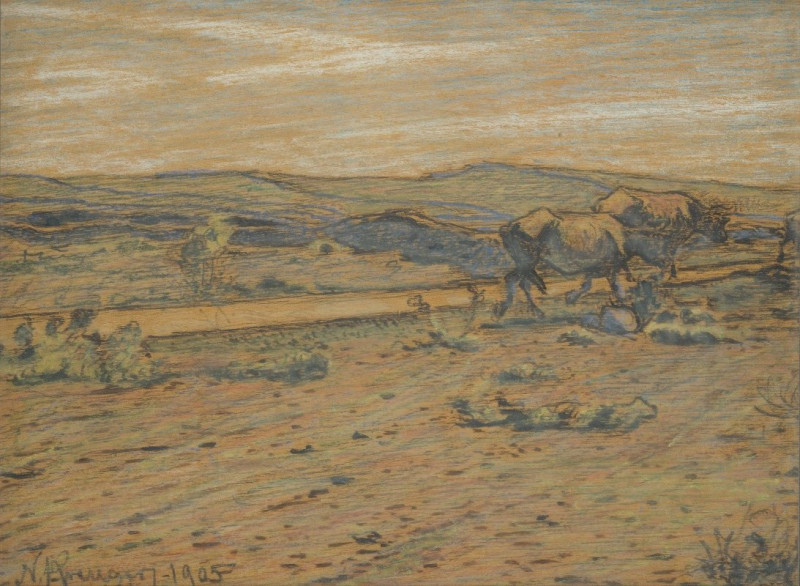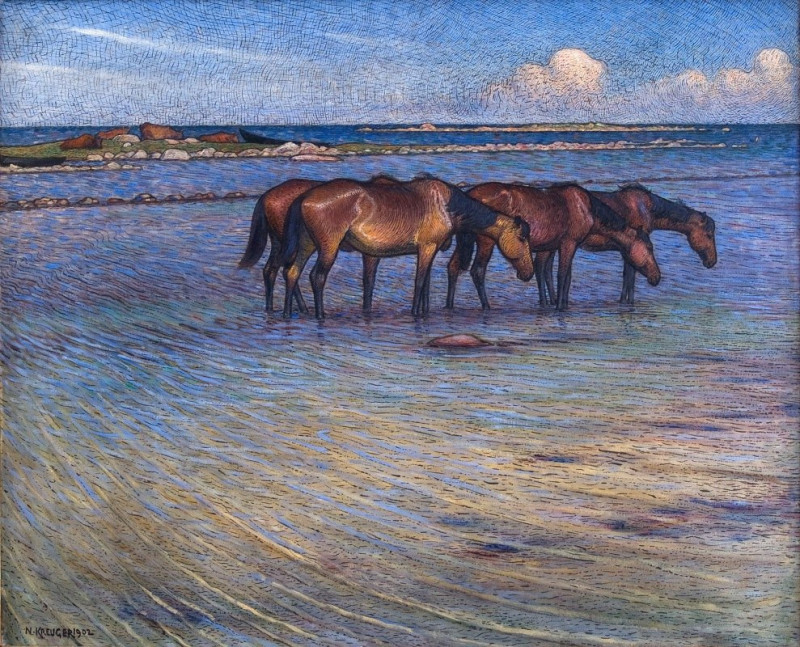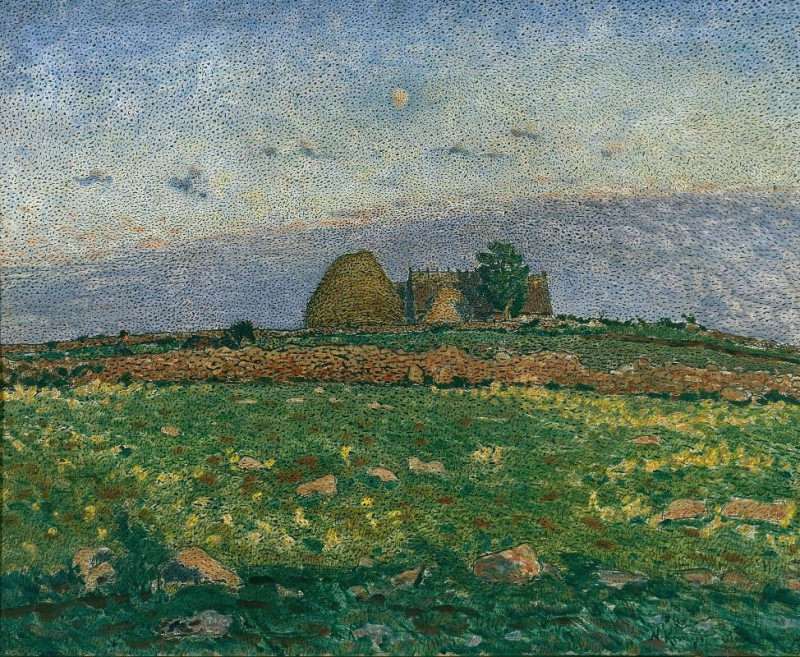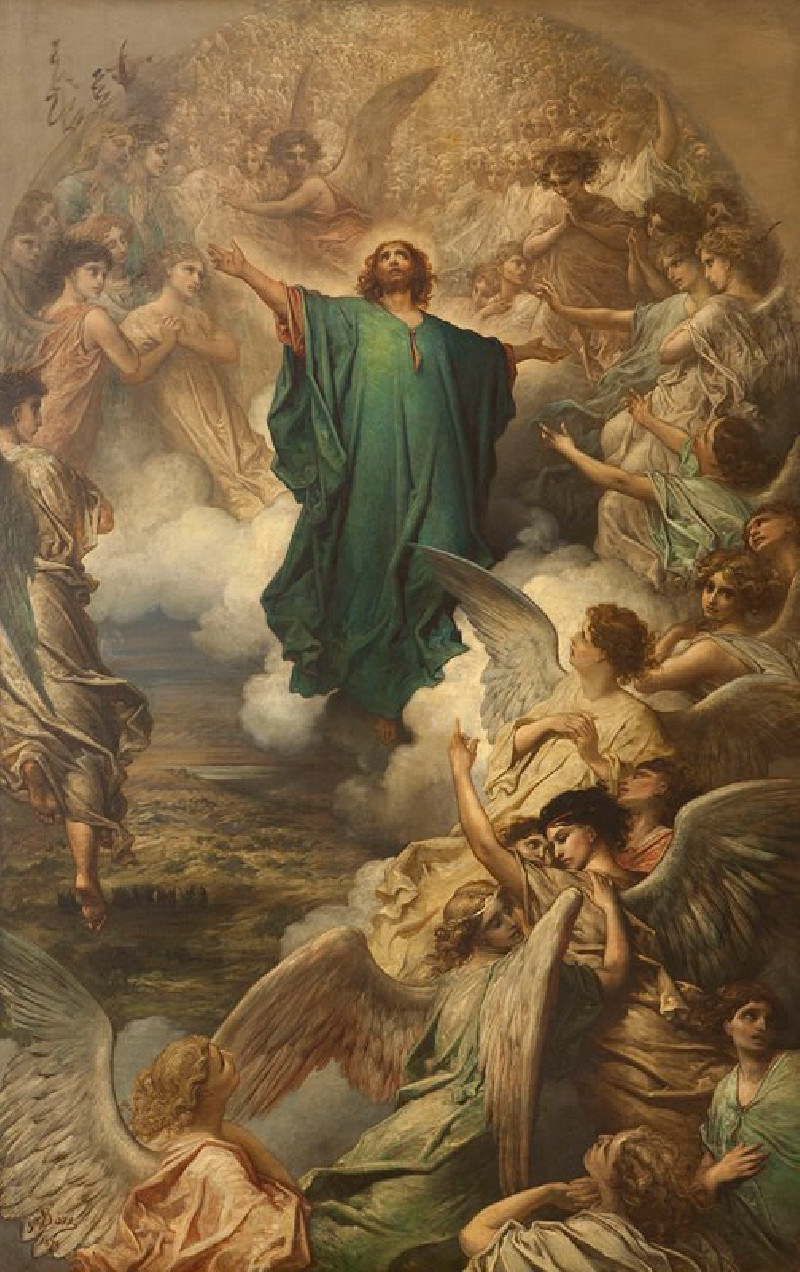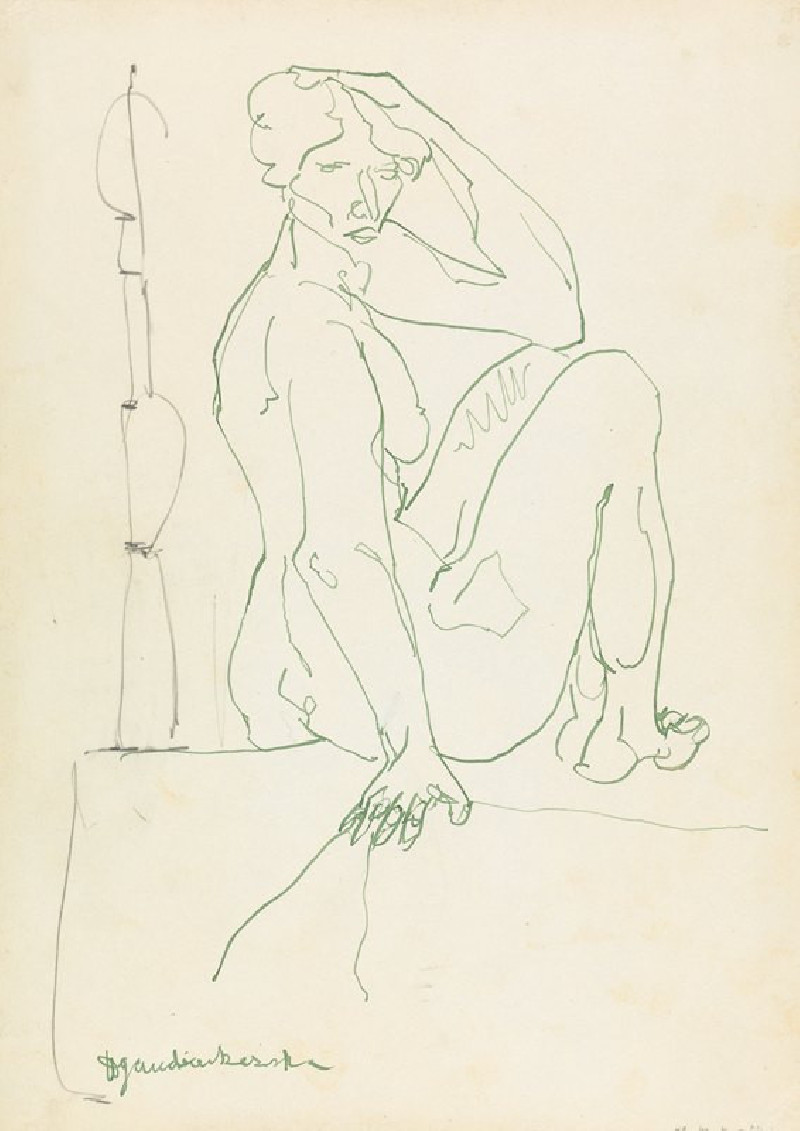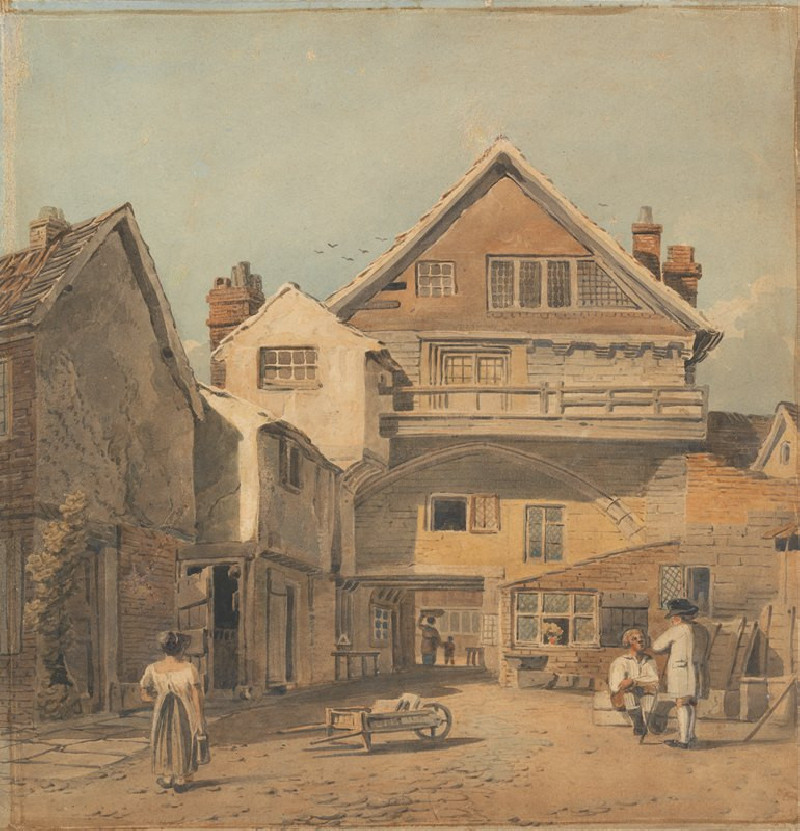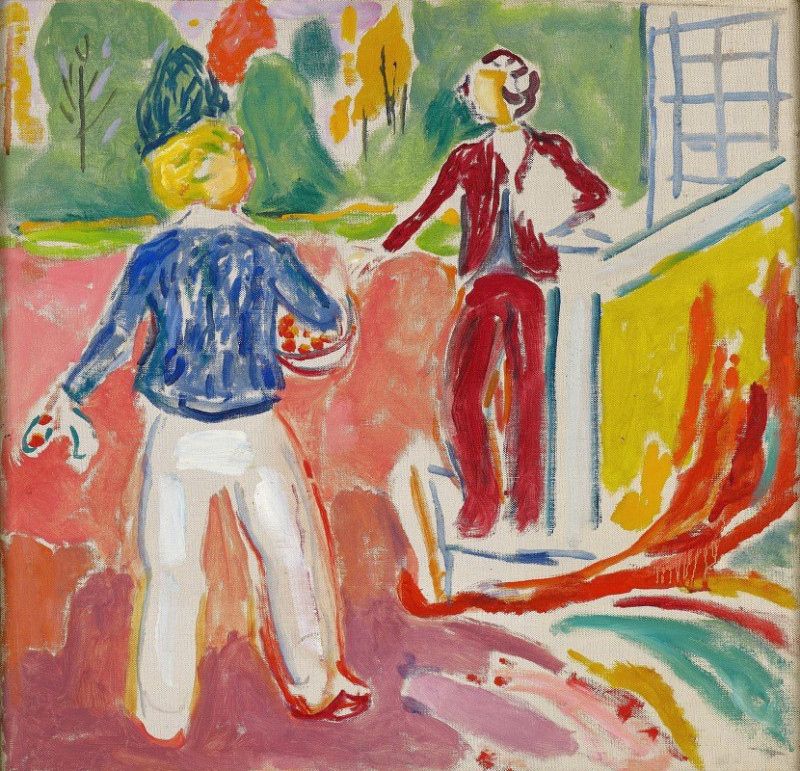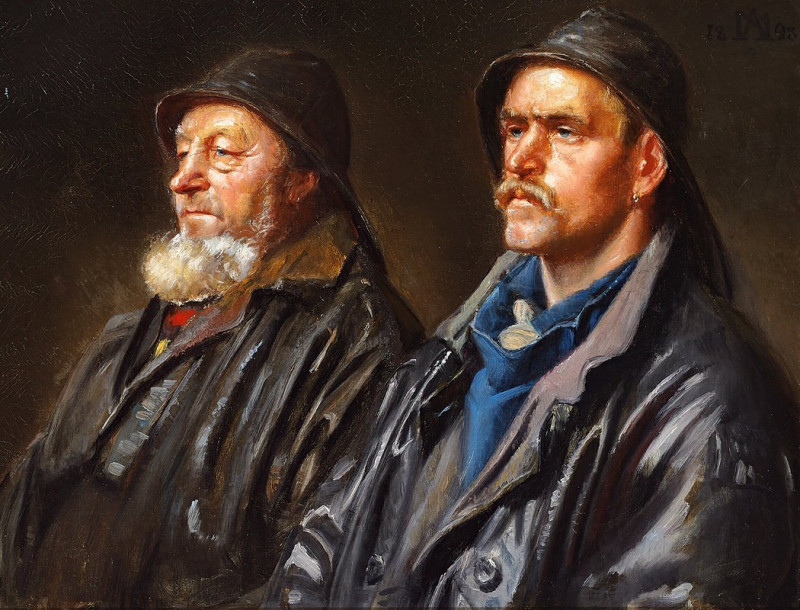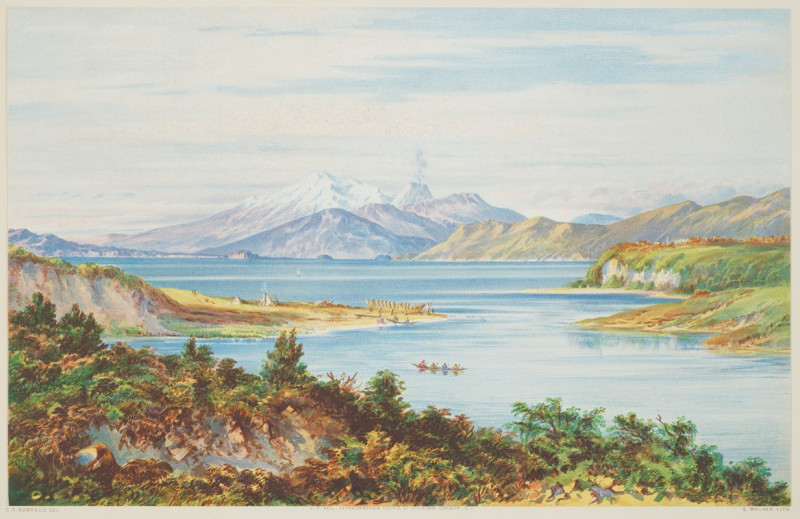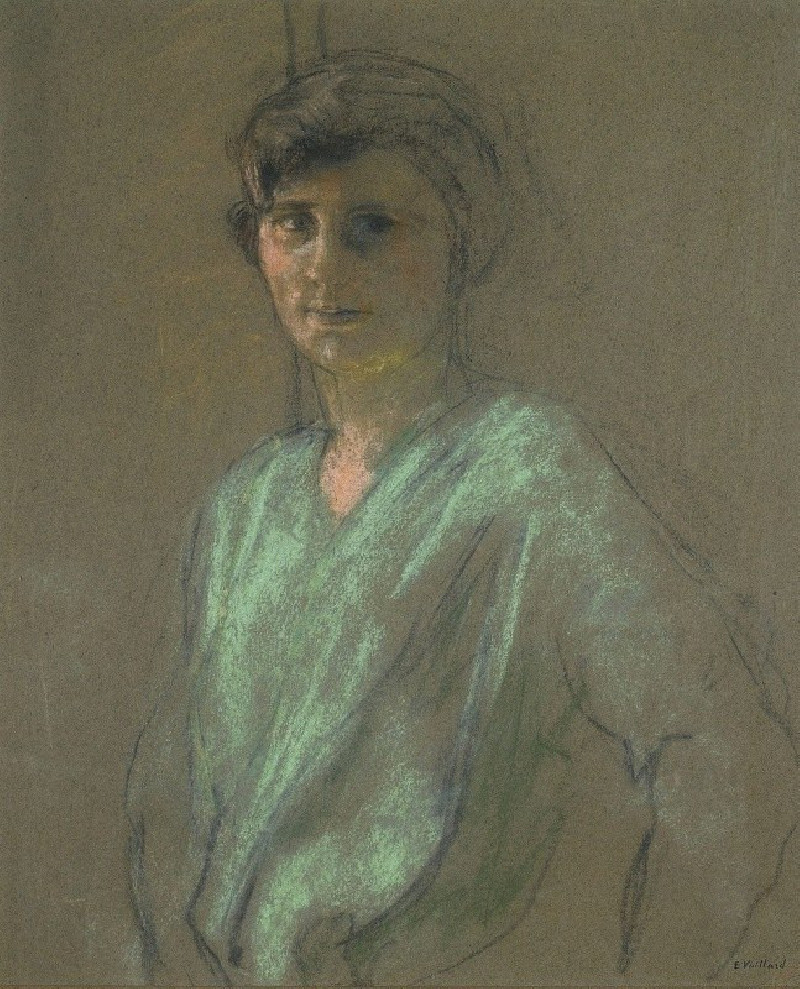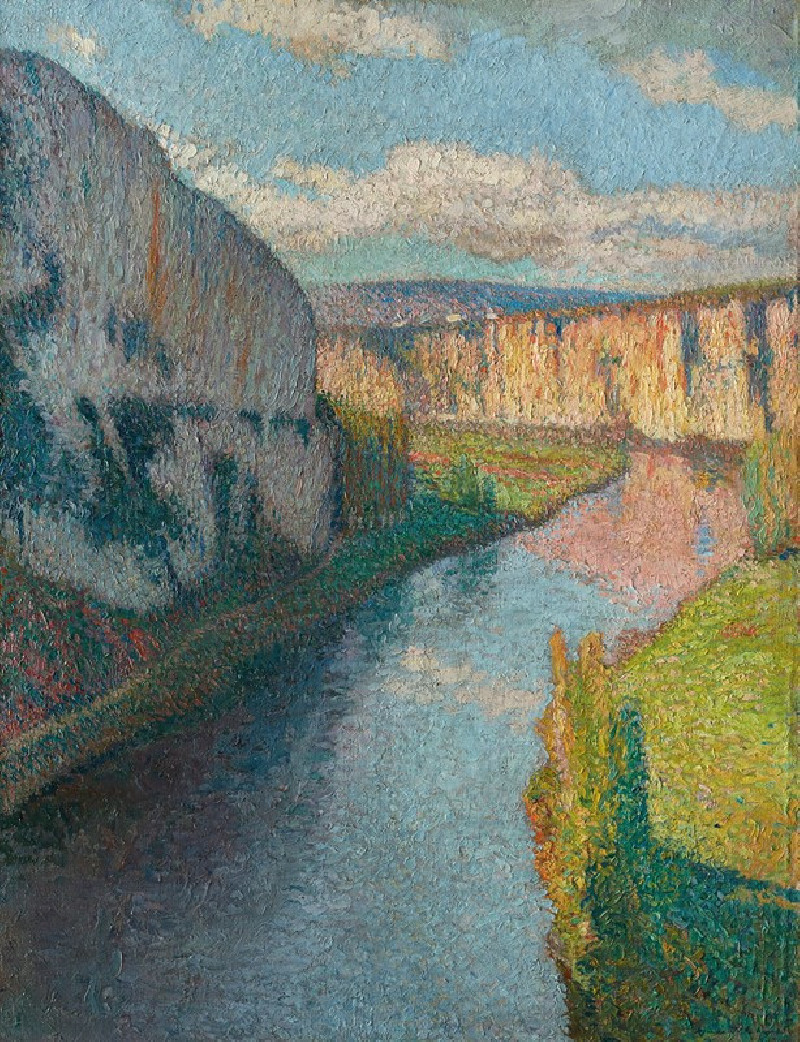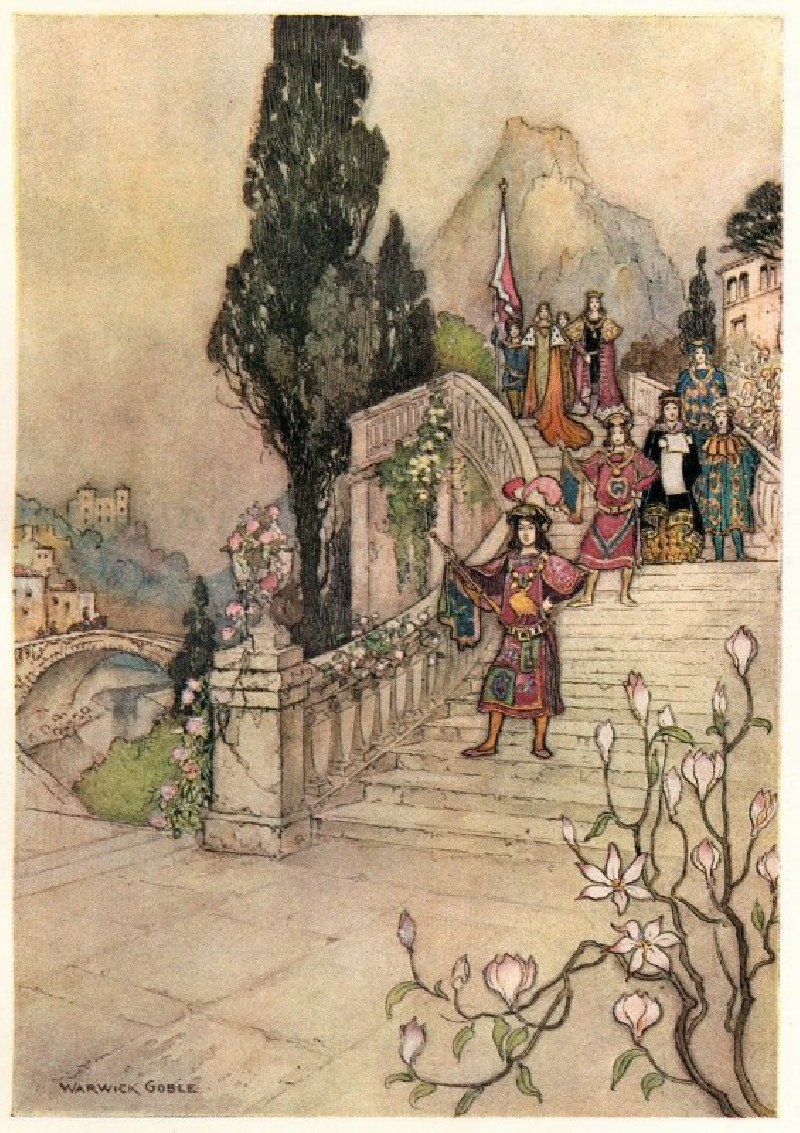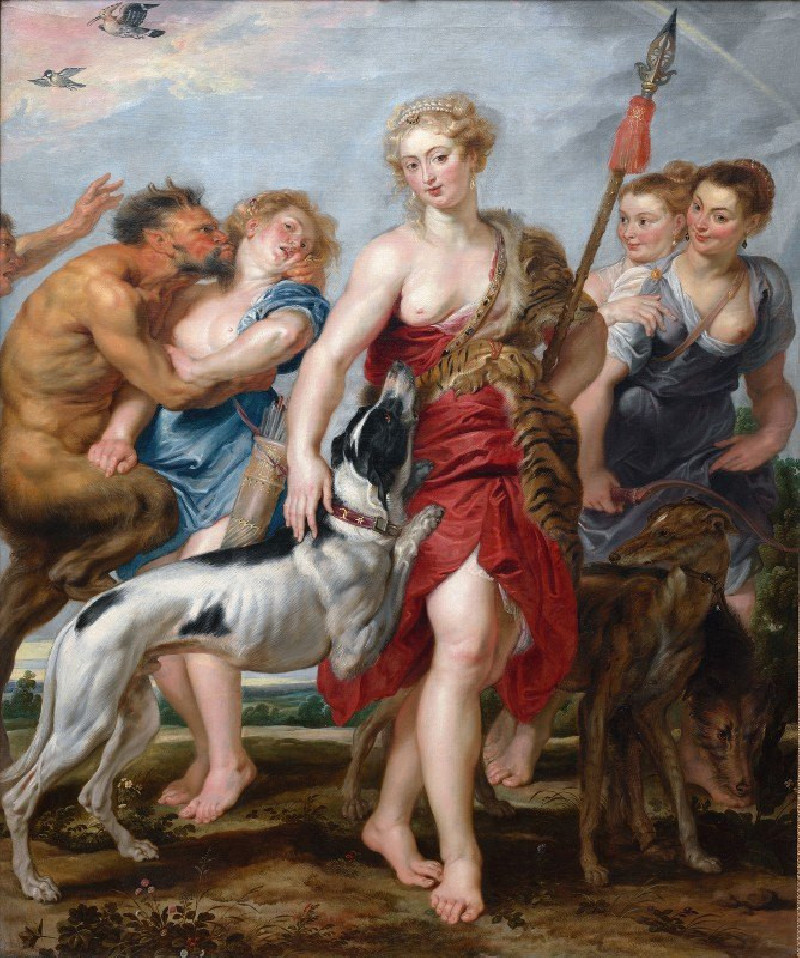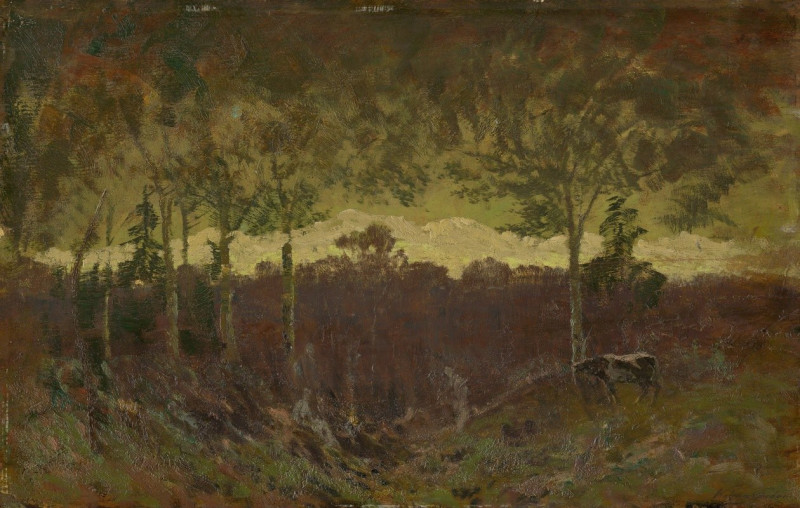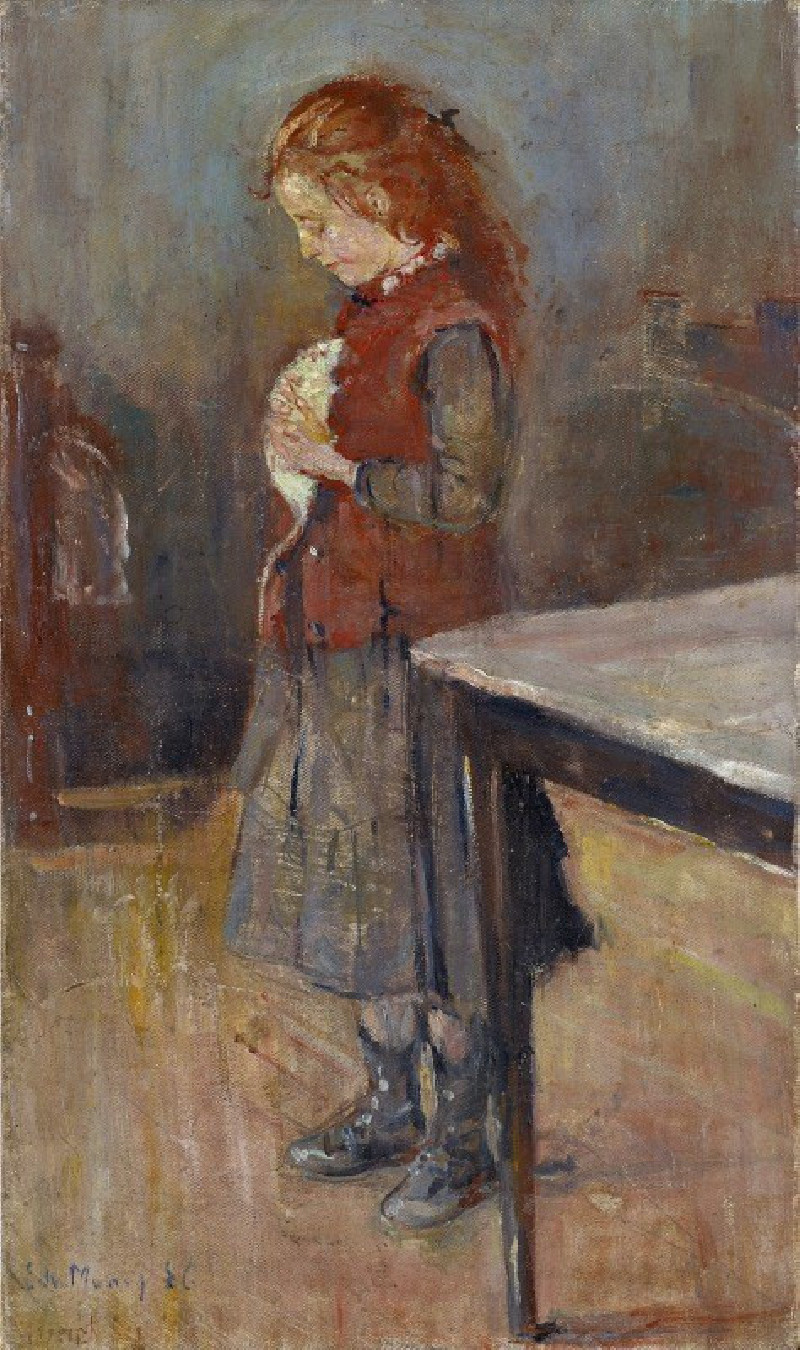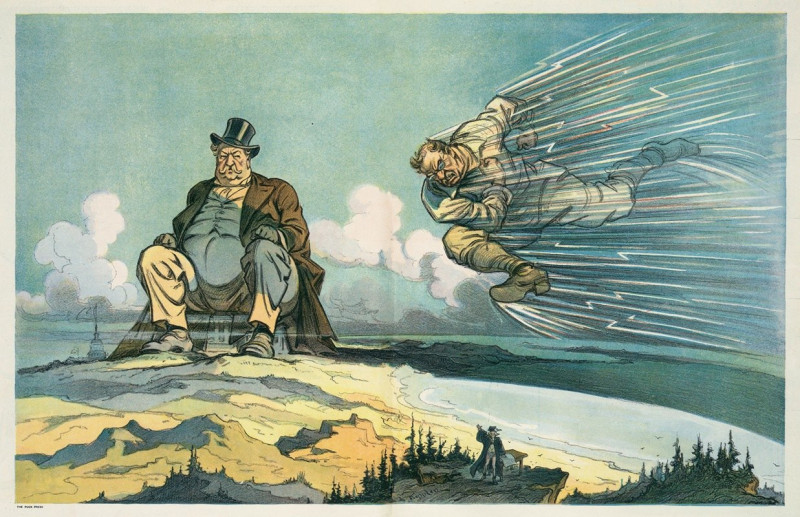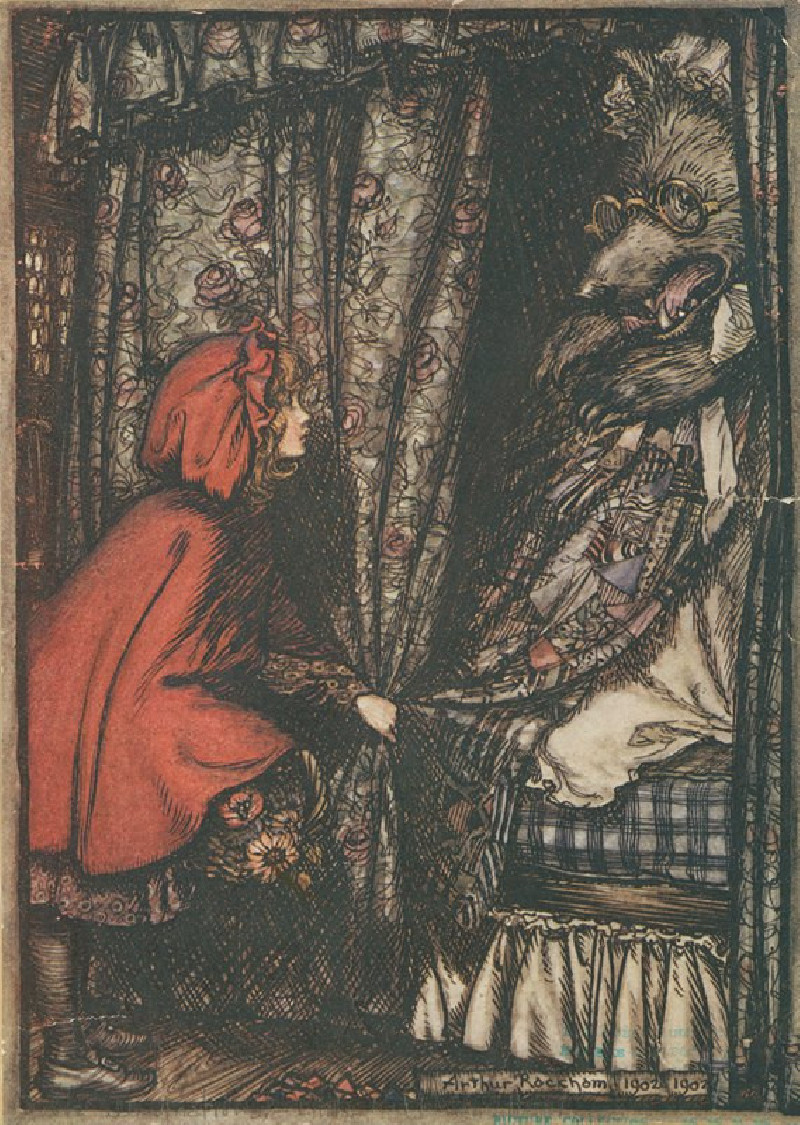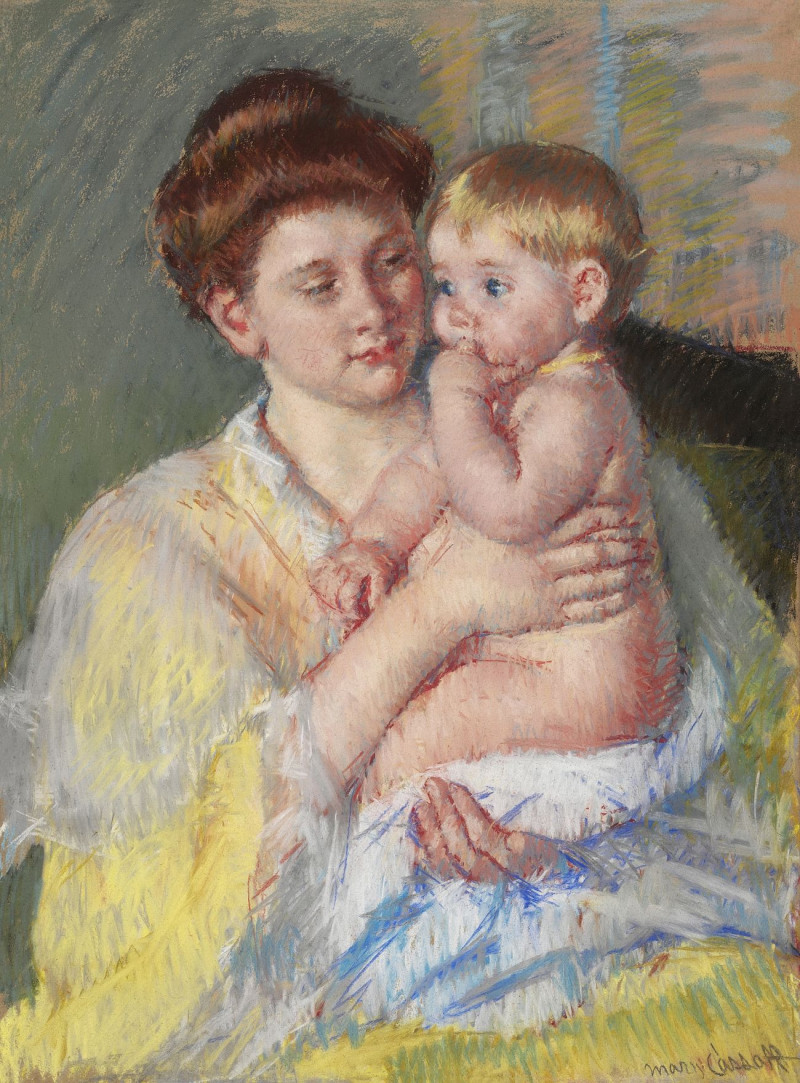Outlying Land (1901)
Technique: Giclée quality print
Recommended by our customers
More about this artwork
"Outlying Land" (1901) by Nils Kreuger captures a serene and bucolic moment in the Swedish countryside, where the intimate connection between nature and agriculture comes to the forefront. The painting portrays a tranquil pastoral scene featuring a combination of grazing cows and a solitary, sprawling tree. The gentle undulation of the lush, green meadow, dotted with hints of vibrant wildflowers, conveys a subtle impression of the wind’s movement.Kreuger employs a unique style with dense and rhythmic brushstrokes, infusing the landscape with a textured and dynamic surface that almost vibrates under the vast, sweeping sky. This celestial dome hints at the onset of dusk or dawn with its softly illuminated clouds, contributing to the calm and contemplative mood.Set in the late 19th century Sweden, a period rich in artistic exploration, Kreuger’s portrayal in "Outlying Land" is evocative of the national romanticism prevalent at that time. The artwork invites observers to look beyond its apparent tranquility, encouraging a deeper reflection on the harmony between nature and human existence.
Delivery
Reproductions are made to order and take 5 to 7 working days.
We send them out by courier and delivery takes another two working days.
If you need a reproduction sooner, please contact us - we can usually find a solution and produce it a little faster.
If you don't want to pay for postage, you can pick up your paintings at our galleries in Kaunas or Vilnius.
Returns
Yes, reproductions can be returned.
If you have any doubts more than 30 days after the date of purchase, please contact us - we will take the reproduction back for a refund or offer you a replacement!
We accept a maximum of two returns per customer - please note that we make reproductions to order, so please choose responsibly.
We do not refund shipping expenses.

